Photography: Shooting star, here you are, the first time you fly by💫📸
After a failed Supermoon mission In Middelburg together with @dboontje, I noticed a post on Facebook. The post was mentioning that the week after our trip to Middelburg we had another event upcoming. It was the meteor shower called Lyrids. Once a year this meteor shower is visible for approx. 10 days at the starry skies. Immediately I sent Dennis a message and we agreed we needed this to enjoy another night out with our cameras as some kind of isolation. The day before we had a call, the weather conditions were looking just perfect! Wait… weren’t they perfect with that supermoon plan either? We decided to give it a go.
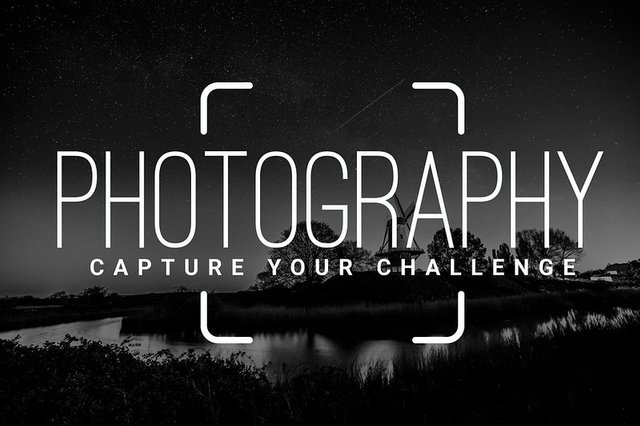 |
|---|
We both searched for some dark spots in our area. The Netherlands have a lot of light pollution, so it isn’t easy to find a spot in the area around you. But we did succeed with some help from websites like Light Polution Map. Dennis did find the spot in Veere (normally a very touristic place, now with the quarantine very quiet and peaceful). As a backup spot we decided to go to Westkapelle if there was to much light pollution in Veere. But once we arrived there it was just perfect!
Every night you can spot some shooting stars with some luck. But on a night with a lot of shooting stars it’s called a meteor shower. The Lyrids for tonight was the best visible if we did look at the sky in the south/south east. Funny fact about the Lyrids is that people did notice them already for thousands of years. According to Nasa the first recorded sighting goes back to 687BC by the Chinese.
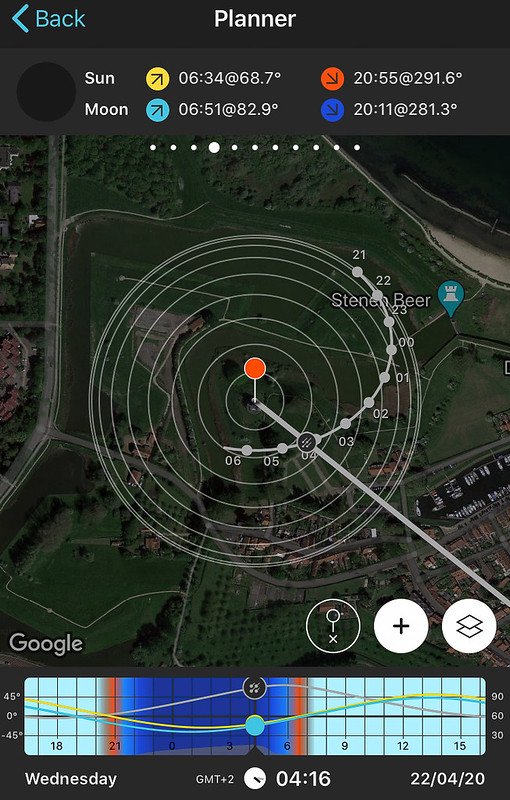 | 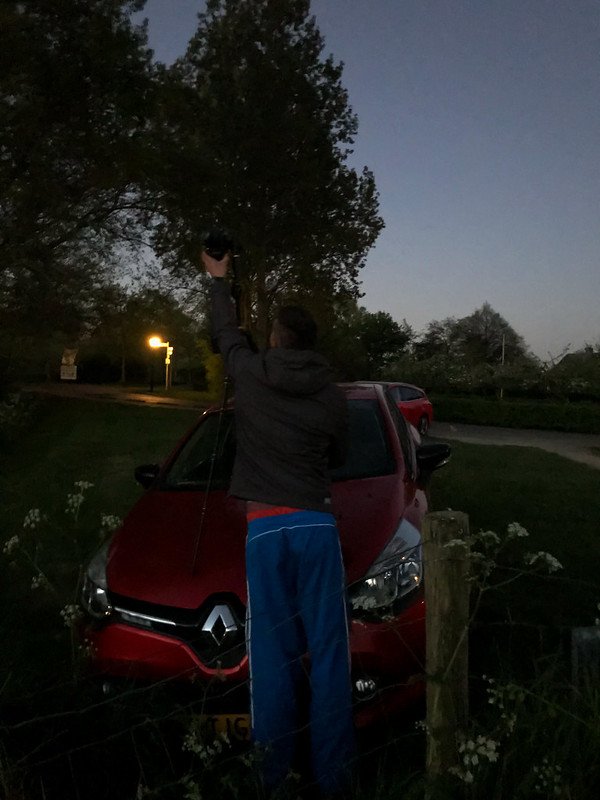 |
|---|---|
| Photopills homework | When your tripod isn't high enough😎 |
We didn’t expect a spectacular show, but I can tell it was beautiful to watch. I think we did encounter around the 20 shooting stars the first hour. Talking about that first hour… I learned the hard way that Nikon made a mess about their implementation of longer shutter times. The idea in my head was to create a startrail. Never created one before and it was still on my list to create a perfect trail image. So, I did my homework and did watch some YouTube videos about creating startrail images. I was prepared for a wonderful night with a show full of stars.
So while I found a nice composition, I did configure the intervalmeter in my camera. With this option the camera will take pictures with a shutter time of 30 seconds and 2 seconds pause in between shots. This way the camera would have some time to write the pictures to my memory cards. This is only theory, because while waiting for a series of 100 pictures (a bit more than a hour of waiting time) I had to find out my camera didn’t write any picture to the memory card🤣🙈 Next day I found out that Nikon their 30 seconds are actually more like 32 seconds. This way my camera didn’t have enough time to write the picture to the memory card… Oops!
Lucky for me I did get some good test shots to get my composition right. Pretty happy with the outcome of those but wish I had that startrail picture 😅 Well better luck next time!
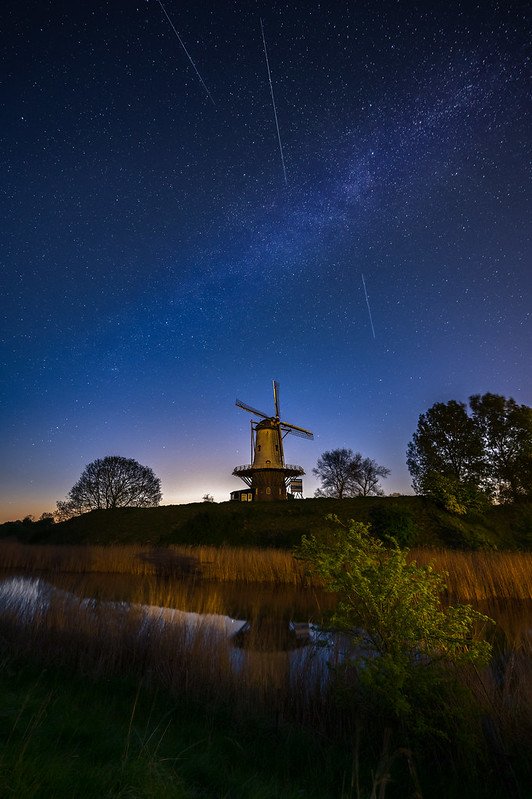 |
|---|
| The best picture from this night |
How did I manage to get these pictures?
Because the earth is rotating, and you will be shooting with longer exposures the stars will change to longer stripes instead of dots. The longer the focal length from your lens the shorter maximum shutter time you can use. To get the visible stars as dots in your image there is a formula to calculate the maximum shutter time you can use. The formula is known as the rule of 400. By this rule you need to multiply the focal length with the crop factor of your camera. Then you need the divide outcome by 400.
Some examples:
- 24mm at a 1.5x crop camera (Nikon DX)
400/(24*1.5)= 11 seconds max - 24mm at a full frame camera (Nikon FX)
400/(24*1)=16.5 seconds max (better to round this down to 16)
You don’t want your ISO to be to high, because you’ll capture a lot of light pollution and create additional noise in your image. You need to test this for your own taste/camera sensor to a level you like the amount of noise. The noise can be reduced by taking multiple pictures and use a technique called stacking. I can write a short tutorial about this if you want to know something about this technique? I wanted to use the same technique to create my star trail in Photoshop. I could use the bulb function on the camera and leave the shutter open for hour(s). But this will increase noise levels. So that’s why I wanted to shoot multiple exposures for the star trail.
Extending our isolation time
During the night the show ended, and Dennis and I tried to capture some other night images. Just to use our isolation time to the max. We were practicing a lot and before we knew the sunrise was almost there. That’s why we decided to wait and capture some colorful images during the sunrise. After this we did drink some coffee and called it a night and went home. I hope you enjoyed the pictures!
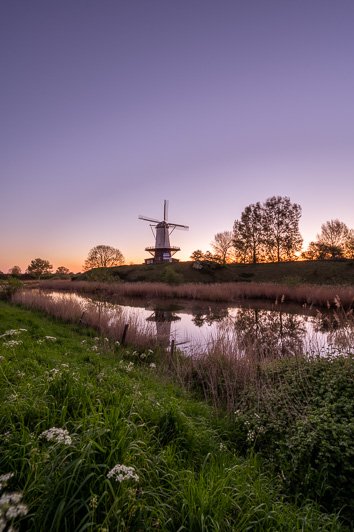 | 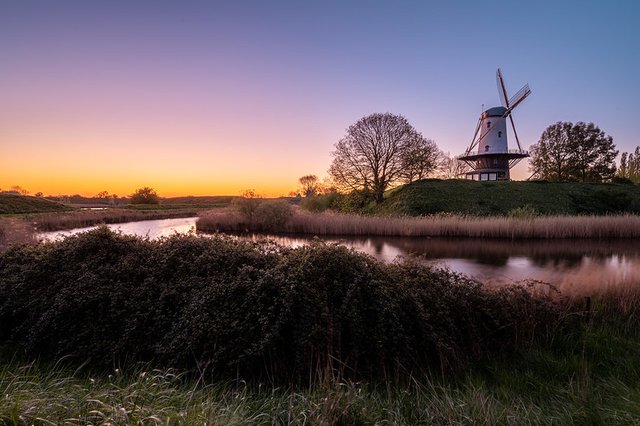 |
|---|
PS. As you might have heard, I'm not 100% healthy at the moment. A reply at a comment can take a while. Sorry in advance for that... ?

Steemmonster Guild
We're a group of players who love the game and are waiting for the upcoming feature the guild wars. Surfingnomad is a guild where you decide how much you play and donate. Why donate? To grow our guild we need to raise a certain amount of DEC and Daily Quests to reach higher levels. When we reach the higher levels you will earn extra DEC rewards in ranked play but also get discounts in the shop. These discounts and extra DEC rewards depends on the level of the guild. Would you like to join us on the battlefields?
 |
|---|
POSH on Twitter